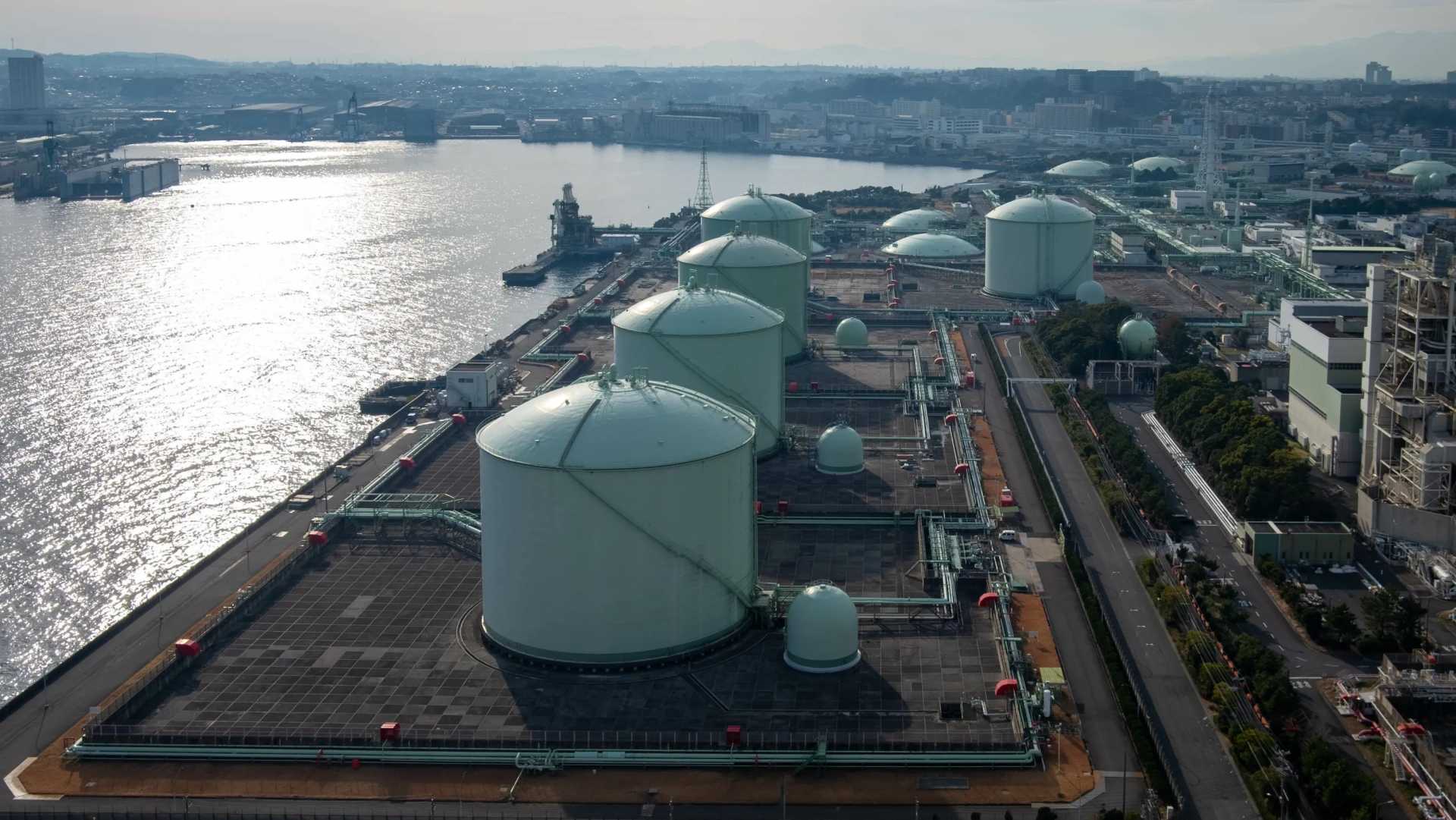The National Security Rationale for Japan’s Transition to Renewable Energy

Japan is a global power of great consequence. It wields more diplomatic influence in the Asia-Pacific than the United States, has the strongest alliance network in the region, and ranks third in the strength of its defense networks among its peers. At the same time, Japan’s reliance on fossil fuel imports makes it uniquely vulnerable to geopolitical turbulence and the effects of climate change, challenging the goals of its own national security strategies. This article will explore the role renewable energy can play in realizing these national security goals, which not only depend upon a reliable stream of energy but also the geopolitical flexibility that energy self-sufficiency provides. This will only increase in importance as global instability continues to intensify.
Japan’s National and Energy Security Context
Japan’s latest round of national security documents—the National Security Strategy (NSS), National Defense Strategy (NDS), and Defense Build-up Plan (DBP)—collectively represent a significant shift in Tokyo’s understanding of its security context and an opportunity to accelerate action on today’s geopolitical and climate challenges. The opening paragraph of the NSS states, “The free, open, and stable international order…is now at stake.” This is especially threatening for Japan considering, as its NDS admits, “[Japan] depends on overseas trade for the majority of its resources and food,” and “is prone to natural disasters that exact heavy damage.” This two-pronged vulnerability complicates Japan’s ability to execute the first two objectives of the NSS: to “[protect] its sovereignty and independence, autonomously determining its domestic and foreign policies,” and “ensure the self-reliance of its economic structure.”
In fact, Japan’s economic structure today is hardly self-reliant. It imports 97% of its energy (with 83% from fossil fuels), placing it near the bottom—104th globally—in the energy efficiency of its economy. This originates in Japan’s response to the 1970s oil crises, which was to build strong economic and political ties with Middle Eastern producers to secure energy sources. While this technically succeeded—94% of all Japan’s crude oil comes from six countries in the Middle East—it also effectively linked the country’s diplomatic priorities to its energy security requirements. As a result, Japan is backed into a corner that forces it to prioritize the strength of its relationships with these countries. While this is not a new phenomenon—many other countries depend heavily on imported energy—the scale of Japan’s dependence makes it unique.
As seen with the economic impact of Russia’s war in Ukraine and the international sanctions on Russian liquefied natural gas (LNG), Japan’s energy and economic security remain fragile. Although Japan was dependent on Russia for just 9% of its LNG, imports have not stabilized, and energy prices rose by 10% over the last year. Likewise, Japan had the largest fossil fuel trade deficit among G7 nations in 2023, highlighting the limits for economic recovery. Even setting climate goals aside, reducing dependence on fossil fuel imports would increase Japan’s ability to achieve its national security goals and insulate itself from the geopolitical turbulence to come. Indeed, decarbonizing Japan’s energy sector is one of the stated goals of the NSS. However, if the other goals of the document are to be realized, Japan needs to accelerate its transition away from continued dependence on imported fossil fuels.
Renewables and Regional Security Relationships
Japan has strong regional defense, economic, and diplomatic relationships, which, given the regional trend towards renewable energy, offers an opportunity for leadership and potential burden-sharing. Overall, the share of renewables powering Asia-Pacific economies has more than doubled since 2000, from 5% to 12%. Australia has made a bold commitment to increase the proportion of renewable energy powering its economy and military, last year giving itself the deadline of 2030 to transition 82% of its electricity grid to renewable sources, while its defense sector committed to achieving net-zero emissions by 2050. Countries like Indonesia, Thailand, and South Korea are trying to increase their transition to renewable power with similar targets and dates. Meanwhile, Russia’s war in Ukraine continues to increase global energy costs, notably for the Philippines and Thailand, with whom Japan has a strong economic relationship, which might spark additional incentives for countries to accelerate their own transition. This provides Japan the opportunity to be a regional leader in the transition away from imported fossil fuels.
The US Angle
There is no denying that the recent deprioritization of renewables in the United States sends a message to Japan and its regional neighbors as they reevaluate their own energy security needs. It has also created, for the moment, a leadership vacuum within the region that China seems poised to fill. Should Japan choose, it could seize this opportunity to step into this role rather than risk being left behind. If it does, there may be lessons for Japan to learn from previous US administrations that made moves to shift to renewable sources. Under the Biden-Harris Administration, initiatives like the Inflation Reduction Act and the bipartisan Infrastructure Investment and Jobs Act sparked a new era of economic boom in the US renewable energy sector, creating jobs, expanding manufacturing capacity, and making renewable energy cheaper than fossil fuels. It also provided financial support for grid resilience and upgrades to facilitate the integration of renewable energy into the grid. And, as Japan knows well, the United States struck many climate and energy partnerships with its allies to advance mutual benefits in the renewable energy space. The moment for leadership is ripe. Studies indicate that without accelerated policy action on renewables, the cost of inaction will only rise—and amidst uncertainty about the trade and defense relationships with the US, Japan can coordinate regional efforts towards securing renewable energy to offer some degree of insulation from US fuel and gas exports.
Future Considerations
Japan has charted an ambitious future for itself through its NSS, NDS, and Defense Build-Up Plan. Achieving the goals within those documents will require flexibility across the major tools of national power—diplomatic, economic, and defense policy. However, remaining tethered to fossil fuels today ties tomorrow’s diplomatic and geopolitical decisions to the foreign dependence undergirding Japan’s energy grid. There is only so much pressure Japan can exert on those from whom it imports its energy before it causes domestic harm—unless and until it makes the decision to pivot from fossil fuels to renewable sources over which it has more control.
Japan’s new 7th Basic Energy Plan attempts to do so, seeking to reduce fossil fuel reliance and improve self-sufficiency by increasing the share of domestic nuclear power and renewable energy. However, the plan fails to meet Japan’s own target of tripling renewable energy by 2030. Japan would benefit from a more ambitious renewable energy target and a plan that no longer links its energy security to fossil fuels. Doing so would still continue its historical policy of diversifying sources without furthering import dependence.
As discussed in a recent workshop organized by the Council on Strategic Risks in Tokyo, Japan faces several challenges that could impede its transition to renewable energy, including permitting hurdles, supply chain bottlenecks, and concerns about the perceived cost of the transition. One challenge, in particular, is China’s dominance in the international market for key components of solar and wind power generation, rare earths that are indispensable for these power generation devices, and their refining and processing.
If Japan continues to move forward with the introduction of renewable energy, it will need to think through how to mitigate the risk of shifting dependence on foreign countries for energy from the Middle East to China. Given China’s importance in manufacturing, the issue of dependence will be a challenge for the United States and other countries as they transition to renewable energy. Japan should therefore work with the United States and its allies to rebuild supply networks for rare earths and key components.
Overcoming these challenges is feasible. China’s dominance in renewable energy’s raw materials creates less economic dependence than a continuous stream of fossil fuel imports. Additionally, younger supply chains can be more easily diversified as economies innovate the dual-use technologies that extend the life of renewable energy generators. For these reasons, Japan should remember its own history of world-leading innovation. This history provides both the opportunity and feasibility for Japan to be a leader in diversifying the renewable energy supply chain away from its present dependence on one country.
Regardless of the specifics of Japan’s future diplomatic or defense policy goals, its broader strategic desire to be an independent, sovereign nation capable of “autonomously determining its domestic and foreign policies” will remain. If Japan can on-shore the energy it needs through transitioning to renewable energy sources, it will increase its geopolitical flexibility and independence. And, as its own strategy documents argue, the uncertainty of global peace and stability makes such a transition both a smart strategic move and a sound tactic for self-preservation. True, the transition to renewable energy will not be easy. But the alternative—maintaining the status quo—is arguably a much harder course.
- [Original Publication] The National Security Rationale for Japan’s Transition to Renewable Energy, COUNCIL ON STRATEGIC RISKS
